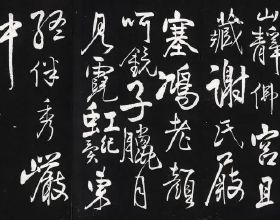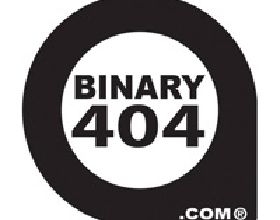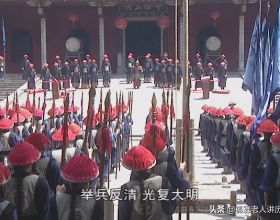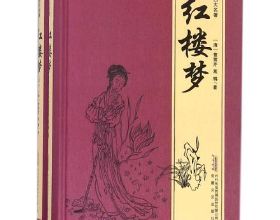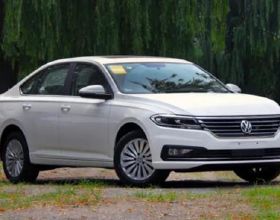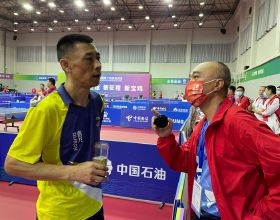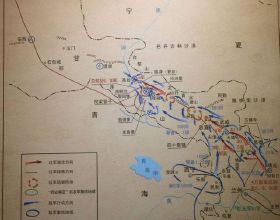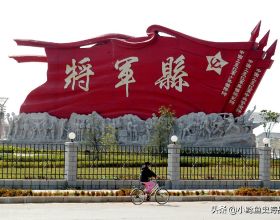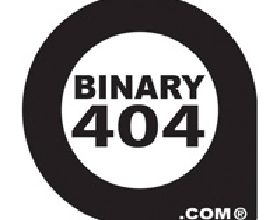摘要
《1992油汙公約》與《2001燃油公約》責任機制向來以專業、複雜聞名,且爭論不息,以致其本義晦澀難明。因其均屬國際條約,故應適用《1969維也納條約法公約》解釋之。本文解釋謹以《1992油汙公約》與《2001燃油公約》責任機制相關文字對勘為務,並輔以筆者本人之簡評,旨在探求其責任機制之正當性及內在關係,屬於筆者本人對此問題法律正當性之解釋,獨立於國內或國外已有判決之司法適用解釋,也獨立於境內外學者著述或論文之解釋。海事國際條約生效之後,司法適用解釋固然重要,並對海事實務具有引導作用,但在司法適用解釋之外其法律正當性解釋也具有根本性意義,對司法適用解釋有強化或修正之功。另有觀點認為海事國際條約正當性解釋應以英美學者著述為依歸,應對其唯唯諾諾,這種仰視之態乃其自身對海事國際條約缺乏法律正當性論證能力之表現,喪失了海事國際條約正當性論證之自信力,不足為訓。實際上,英美法律論證也有一定路徑,或詳或略,並非羚羊掛角無跡可尋;英美法律論證也非絕對真理,反而推崇批判和自我批判,攻守之間方可分庭抗禮。本文法律論證如有錯誤,歡迎指出和切磋。
簡言之,《1992油汙公約》與《2001燃油公約》責任機制對勘和簡評如下:
(一)責任場景:《1992油汙公約》適用於油輪洩露或排放貨油或其燃油造成的汙染事故;《2001燃油公約》適用於除《1992油汙公約》所述油輪之外海船洩露或排放其燃油造成的汙染事故;二者為互補關係,不存在重疊。
(二)責任主體:《1992油汙公約》中“船東”僅指登記的或實際的船舶所有人,為單一主體;《2001燃油公約》中“船東”包括登記的或實際的船舶所有人、光船承租人、船舶管理人和經營人,為復多主體。
(三)歸責原則:《1992油汙公約》與《2001燃油公約》均為漏油船船東嚴格責任制,但《1992油汙公約》因船東為單一主體故需排除船東利益方之責任,否則船東嚴格責任將會被繞開;而《2001燃油公約》因船東為復多主體故需明確其內部為連帶責任以便操作;二者立法旨趣雖有不同但均以限定船東嚴格責任制為導向。
(四)定責法律關係:《1992油汙公約》與《2001燃油公約》均規定了向漏油船船東索賠之排他性法律依據,但此問題有三處留白:(1)該規定沒有指出受害方是否有權向漏油船船東之外第三方索賠;如可,適用何種法律?(2)該規定沒有指出誰向漏油船船東索賠,受害方還是第三方?(3)受害方根據《1992油汙公約》或《2001燃油公約》之外法律規定向漏油船船東之外第三方索賠的,是否還有權根據《1992油汙公約》或《2001燃油公約》下嚴格責任制要求漏油船船東承擔全部賠償責任,或者說其權利是否受到一定限制?
(五)受害方向船東利益方或第三方索賠和受償後權利轉讓:按《1992油汙公約》和《2001燃油公約》,受害方向船東利益方或第三方索賠的,在受償後應將相應權利轉讓給船東利益方或第三方行使。
(六)責任承擔後之追償:《1992油汙公約》與《2001燃油公約》基本相同,但《2001燃油公約》明確此追償權獨立於公約,另行適用相關法律。至於此種追償權之正當性,則根源於嚴格責任制,為其應有之義。
(七)免責和減責情形:《1992油汙公約》與《2001燃油公約》完全一致,蓋此為嚴格責任制下免責和減責事由之通例。
(八)責任限制:《1992油汙公約》與《2001燃油公約》均規定了漏油船責任限制,但二者限額不同。
(九)責任增補與雙層賠償:《2001燃油公約》下除漏油船嚴格責任及其責任限制外不存在責任增補與雙層賠償;但《1992油汙公約》中船東責任之上另有《1992基金公約》及《2003補充基金議定書》規定了貨油方補充承擔的油汙責任,構成了雙層賠償機制,以確保受害方獲得全部賠償。
總之,在責任機制問題上,《1992油汙公約》與《2001燃油公約》雖然原則上均為嚴格責任制,相關規定不免存在一定偶合;但更多是互有差異,總體上屬於兩套不同體系,應分別進行全盤把握,分清脈絡,不宜張冠李戴,混淆錯亂。
關鍵詞:《1992油汙公約》 《2001燃油公約》 責任機制
《1992油汙公約》與《2001燃油公約》責任機制問題向來以專業、複雜聞名,且爭論不息,以致其本義晦澀難明。因其均屬國際條約,故應適用《1969維也納條約法公約》解釋之。
按《1969維也納條約法公約》第三十一條,“條約應依其用語按其上下文並參照條約之目的及宗旨所具有之通常意義,善意解釋之”,此處“上下文”包括條約之弁言、附件及“全體當事國間因締結條約所訂與條約有關之任何協定”等。
本文將據此對勘《1992油汙公約》和《2001燃油公約》責任機制,包括:(1)責任場景;(2)責任主體;(3)歸責原則;(4)免責和減責情形;(5)定責法律關係;(6)責任限制;(7)責任承擔後之追償;(8)責任增補與雙層賠償等,並對相關問題進行系統簡評,作為進一步探討之基礎。
本文解釋謹以《1992油汙公約》與《2001燃油公約》責任機制相關文字對勘為務,並輔以筆者本人之簡評,旨在探求其責任機制之正當性及內在關係,屬於筆者本人對此問題法律正當性之解釋,獨立於國內或國外已有判決之司法適用解釋,也獨立於境內外學者著述或論文之解釋。
海事國際條約生效之後,司法適用解釋固然重要,並對海事實務具有引導作用,但在司法適用解釋之外其法律正當性解釋也具有根本性意義,對司法適用解釋有強化或修正之功。
另有觀點認為海事國際條約正當性解釋應以英美學者著述為依歸,應對其唯唯諾諾,這種仰視之態乃其自身對海事國際條約缺乏法律正當性論證能力之表現,喪失了海事國際條約正當性論證之自信力,不足為訓。實際上,英美法律論證也有一定路徑,或詳或略,並非羚羊掛角無跡可尋;英美法律論證也非絕對真理,反而推崇批判和自我批判,攻守之間方可分庭抗禮。
本文對《1992油汙公約》與《2001燃油公約》中責任機制的法律論證如有錯誤,歡迎指出和切磋。
一、責任場景:《1992油汙公約》與《2001燃油公約》適用的船舶型別及油類汙染事故
(一)《1992油汙公約》適用於油輪洩露或排放貨油或其燃油造成的汙染事故
按《1992油汙公約》第一條第一項,簡而言之“船舶”是指油輪,具體是指“any sea-going vessel and seaborne craft of any type whatsoever constructed or adapted for the carriage of oil in bulk as cargo, provided that a ship capable of carrying oil and other cargoes shall be regarded as a ship only when it is actually carrying oil in bulk as cargo and during any voyage following such carriage unless it is proved that it has no residues of such carriage of oil in bulk aboard”。
按《1992油汙公約》第一條第五項,“油類”指上述油輪所載貨油或其燃油。
(二)《2001燃油公約》適用於除《1992油汙公約》所述油輪之外海船洩露或排放其燃油造成的汙染事故
按《2001燃油公約》第四條“除外”規定,本公約不適用於《1992油汙公約》範圍內的油汙損害。
另按《2001燃油公約》第一條第一項和第五項,“船舶”是指任何海船,“燃油”是指該船運轉或推進所需燃油。
簡評:結合這兩方面規定可知,《2001燃油公約》與《1992油汙公約》在適用範圍上不存在任何重疊,而是互補關係,即《2001燃油公約》適用於《1992油汙公約》所述油輪之外的海船洩露或排放其燃油引起的油汙事故。
二、責任主體:《1992油汙公約》與《2001燃油公約》定義的船東範圍
(一)《1992油汙公約》定義的船東範圍
按《1992油汙公約》第一條第三項,“船東”是指登記的船舶所有人或者實際所有人(若無登記的船舶所有人)。
(二)《2001燃油公約》定義的船東範圍
按《2001燃油公約》第一條第三項和第四項,“船東”包括登記的船舶所有人或實際的船舶所有人(若無登記的船舶所有人)、光船承租人、船舶管理人和經營人。
簡評:在責任主體方面,《1992油汙公約》與《2001燃油公約》對“船東”定義了不同範圍。具體來說,《1992油汙公約》中“船東”為單一主體,即登記的或實際的船舶所有人;而《2001燃油公約》中“船東”為復多主體,除登記的或實際的船舶所有人外,還包括光船承租人、船舶管理人和經營人。
三、歸責原則:《1992油汙公約》與《2001燃油公約》下漏油船船東嚴格責任制
(一)《1992油汙公約》下漏油船船東嚴格責任制
按《1992油汙公約》第三條第一款:“Except as provided in paragraphs 2 and 3 of this Article, the owner of a ship at the time of an incident, or, where the incident consists of a series of occurrences, at the time of the first such occurrence, shall be liable for any pollution damage caused by the ship as a result of the incident”。
另按《1992油汙公約》第三條第四款:“Subject to paragraph 5 of this Article, no claim for compensation for pollution damage under this Convention or otherwise may be made against: (a) the servants or agents of the owner or the members of the crew; (b) the pilot or any other person who, without being a member of the crew, performs services for the ship; (c) any charterer (how so ever described, including a bareboat charterer), manager or operator of the ship; (d) any person performing salvage operations with the consent of the owner or on the instruction of a competent public authority; (e) any person taking preventive measures; (f) all servants or agents of persons mentioned in subparagraphs (c), (d) and (e), unless the damage resulted from their personal act or omission, committed with the intent to cause such damage, or recklessly and with knowledge that such damage would probably result.”
簡評:《1992油汙公約》透過第三條第1款和第4款從正反兩個方面確立了漏油船之船東嚴格責任制。其中第1款從正面規定漏油船船東嚴格責任,第四款從反面排除船東利益方的責任,彌補了《1992油汙公約》對船東之定義僅限於登記的或實際的船舶所有人而引起的潛在缺漏,關閉了繞過船東而借道船東利益方開啟船東風險敞口的後門,強化了漏油船船東嚴格責任制。
(二)《2001燃油公約》下漏油船船東嚴格責任制
按《2001燃油公約》第三條第一款,“Except as provided in paragraphs 3 and 4, the shipowner at the time of an incident shall be liable for pollution damage caused by any bunker oil on board or originating from the ship, provided that, if an incident consists of a series of occurrences having the same origin, the liability shall attach to the shipowner at the time of the first of such occurrences”。
另按《2001燃油公約》第三條第二款,“When more than one person is liable in accordance with paragraph 1, their liability shall be joint and severe”。
簡評:考慮到《2001燃油公約》中船東定義之復多性,該公約第三條第一款在對漏油船船東嚴格責任制作出規定後,又透過第二款對船東之中復多主體之間的連帶責任進行了規定,使此嚴格責任制臻於精密。這與《1992油汙公約》中船東定義之單一性及反向限制責任主體分屬不同旨趣,但其最終導向均為根據不同情形以相應的不同方式限定船東嚴格責任制。
另須指出,所謂“嚴格責任制”只是一種理論術語,而非具有法律約束力之規定。結合本文兩份公約,此處嚴格責任係指《1992油汙公約》中“liable for any pollution damage caused by the ship”和《2001燃油公約》中“liable for pollution damage caused by any bunker oil on board or originating from the ship”。這兩串短語並不簡單,蘊含了兩層含義,一是其歸責原由僅以船舶造成油汙之客觀事實為要件,而不以主觀過錯為要件,採“caused by”標準;二是其歸責範圍為任何油汙損失,而非部分油汙損失,採“any damage”標準。因此,忽視其中任何一層含義都是對嚴格責任制理解不全面的表現,而任何一層含義都不像其表面看起來如此簡單,而可據之作出更深入推導。
四、定責法律關係:《1992油汙公約》與《2001燃油公約》下向漏油船船東索賠之排他性法律依據
(一)《1992油汙公約》下向漏油船船東索賠的排他性法律依據
按《1992油汙公約》第三條第四款,“No claim for compensation for pollution damage may be made against the owner otherwise than in accordance with this Convention.”
(二)《2001燃油公約》下向漏油船船東索賠的排他性法律依據
按《2001燃油公約》第三條第五款,“No claim for compensation for pollution damage shall be made against the shipowner otherwise than in accordance with this Convention.”
簡評:在向漏油船船東索賠問題上,《1992油汙公約》與《2001燃油公約》基本一致,均規定了排他性法律依據,使這兩部公約在此問題上優先於締約國相關國內法。值得注意的是,上述規定有三處留白:
1. 該規定沒有指出受害方是否有權向漏油船船東之外第三方索賠;如可,適用何種法律?
2. 該規定沒有指出誰向漏油船船東索賠,受害方還是第三方?具體來說,若受害方向漏油船船東之外第三方索賠,該第三方是否有權代位受害方向漏油船船東索賠?
3. 進一步,受害方根據《1992油汙公約》或《2001燃油公約》之外法律規定向漏油船船東之外第三方索賠的,是否還有權根據《1992油汙公約》或《2001燃油公約》下嚴格責任制要求漏油船船東承擔全部賠償責任,或者說這是否會導致受害方喪失根據《1992油汙公約》或《2001燃油公約》向漏油船之船東索賠全部損失之權利,至少導致此權利受到限制?
五、受害方向船東利益方和第三方索賠和受償後權利轉讓:《1992油汙公約》和《2001燃油公約》中受害方權利轉讓
(一)《1992油汙公約》中受害方權利轉讓
按《1992油汙公約》,受害方向船東利益方或第三方索賠的,在受償後應將相應權利轉讓給船東利益方或第三方行使。
首先,關於漏油船船東及其利益方在責任限制基金分配前向受害方預付賠款問題,按《1992油汙公約》第五條第五款,“If before the fund is distributed the owner or any of his servants or agents or any person providing him insurance or other financial security has as a result of the incident in question, paid compensation for pollution damage, such person shall, up to the amount he has paid, acquire by subrogation the rights which the person so compensated would have enjoyed under this Convention.”
其次,關於第三方在責任限制基金分配前向受害方預付賠款問題,按《1992油汙公約》第五條第六款,“The right of subrogation provided for in paragraph 5 of this Article may also be exercised by a person other than those mentioned therein in respect of any amount of compensation for pollution damage which he may have paid but only to the extent that such subrogation is permitted under the applicable national law. ”按此規定,在一國國內法允許範圍內,若受害方向漏油船之外第三方索賠,則其索賠範圍內之權利將轉移給該第三方行使。
最後,關於船東及第三方在限制基金分配後向受害方待付賠款問題,按《1992油汙公約》第五條第七款,“Where the owner or any other person establishes that he may be compelled to pay at a later date in whole or in part any such amount of compensation, with regard to which such person would have enjoyed a right of subrogation under paragraphs 5 and 6 of this Article, had the compensation been paid before the fund was distributed, the court or other competent authority of the State where the fund has been constituted may order that a sufficient sum shall be provisionally set aside to enable such person at such late date to enforce his claim against the fund.”按此規定,若受害方在漏油船責任限制基金之外另行向漏油船及第三方索賠,則該項索賠仍應從漏油船責任限制基金中撥付,漏油船責任以其責任限制基金為限。
(二)《2001燃油公約》中受害方權利轉讓
《2001燃油公約》本身並無與《1992油汙公約》第五條第五款至第七款類似規定,但《2001燃油公約》第六條“責任限制”提到的《1976海事賠償責任限制公約》之第十二條第二款至第四款為同等規定。
簡評:《1992油汙公約》和《2001燃油公約》提到的船東利益方和第三方向受害方賠償後代位行使相關權利之規定,至少有五方面暗示:
1. 雖然《1992油汙公約》規定不得根據該公約要求船東利益方承擔油汙賠償責任,但受害方仍可根據其他法律規定要求船東利益方承擔此責任,只不過受害方在受償後應將相應權利轉讓給船東利益方行使;
2. 《1992油汙公約》沒有規定船東及其利益方之外第三方是否應承擔油汙責任,受害方可根據其他法律規定要求該第三方承擔此責任;同樣,在相關國內法允許情況下受害方受償後也應將相關權利轉讓給第三方向漏油船船東行使。
3. 漏油船船東僅以《1992油汙公約》規定的責任限額為限承擔油汙賠償責任,不因受害方選擇不同索賠路徑而受影響。
4. 受害方不得重複索賠,在從船東利益方或第三方受償後,相應權利應自動轉讓。
5. 船東利益方或第三方在《1992油汙公約》或《2001燃油公約》之外向受害方賠償後,有權在賠償範圍內代位受害方行使相關權利獲取救濟。
進一步,按《2001燃油公約》前言中“Recognizing the importance of establishing strict liability for all forms of oil pollution which is linked to an appropriate limitation of the level of that liability”,嚴格責任制與適當責任限制相關聯。換言之,若受害方準備享受嚴格責任制之便利,就應受到適當責任限制之制約。或者說,受害方不得既享有漏油船嚴格責任制便利,又不受漏油船責任限制制約,導致漏油船船東既承擔嚴格責任,又不得享受責任限制。為保證漏油船在實效上享受責任限制,若受害方選擇向漏油船船東之外第三方索賠的,在其從第三方獲償後,也應在獲償範圍內將相應權利轉讓給第三方向漏油船行使。換言之,若第三方(包括船舶碰撞中有過失但沒有漏油船舶一方)在自身過失比例範圍內向受害方支付了油汙損害賠償,則該第三方有權在其賠償範圍內取得代位受害方向漏油方追償之權利或者與漏油方向第三方追償權相互衝抵,第三方從漏油方獲賠權利則相應扣減,從而實現漏油方、第三方及受害方權利義務平衡。
最後,《1992油汙公約》和《2001燃油公約》為受害方提供了一條索賠和受償“捷徑”,供受害方選用。若受害方偏離這條“捷徑”而選擇向第三方索賠和受償,從公平角度看,其從第三方受償後對相應索賠已無權利可言,理應將相關權利轉讓給第三方,不得向漏油船重複索賠,而應由該第三方向漏油船主張相應權利。此受害方權利轉讓機制一方面降低了受害方索賠便捷度,另一方面使得受害方不得不當得利,得不償失,客觀上對受害方偏離《1992油汙公約》和《2001燃油公約》具有抑制作用,從另一個角度強化了而非架空了《1992油汙公約》和《2001燃油公約》設定的漏油船嚴格責任制。
須指出,按《1992油汙公約》和《2001燃油公約》,受害方從漏油船船東利益方受償後權利轉讓未附條件,但受害方從其他第三方受償後權利轉讓則以相關國內法允許為條件。至於何為“國內法允許”、採用何種標準認定“國內法允許”,有待進一步探討。
六、責任承擔後之追償:《1992油汙公約》與《2001燃油公約》下漏油船船東向第三方追償之權利
(一)《1992油汙公約》下漏油船船東向第三方追償之權利
按《1992油汙公約》第三條第五款,“Nothing in this Convention shall prejudice any right of recourse of the owner against third parties.”
(二)《2001燃油公約》下漏油船船東向第三方追償之權利
按《2001燃油公約》第三條第六款,“Nothing in this Convention shall prejudice any right of recourse of the shipowner which exists independently of this Convention.”
簡評:在漏油船船東向第三方追償問題上,《1992油汙公約》與《2001燃油公約》基本相同,但《2001燃油公約》明確此追償權獨立於公約,另行適用相關法律。至於此種追償權之正當性,則根源於嚴格責任制。所謂嚴格責任制,除不以過錯作為歸責原由外,還有一層含義在於不論行為人是否有過錯、不論其過失比例大小均應對全部損失承擔責任。申言之,嚴格責任制對應損失不是任何比例的部分損失,而是全部損失,包括第三方(如船舶碰撞中有過失但未漏油船舶一方等)過失比例所造成的部分損失,這正是《1992油汙公約》與《2001燃油公約》賦予漏油船向第三方追償的正當性所在,也是嚴格責任制應有之義。
七、免責和減責情形:《1992油汙公約》與《2001燃油公約》中漏油船船東免責和減責情形
(一)《1992油汙公約》中漏油船船東免責和減責情形
按《1992油汙公約》第三條第二款:“No liability for pollution damage shall attach to the owner if he proves that the damage: (a) resulted from an act of war, hostilities, civil war, insurrection or a natural phenomenon of an exceptional, inevitable and irresistible character, or (b) was wholly caused by an act or omission done with intent to cause damage by a third party, or (c) was wholly caused by the negligence or other wrongful act of any Government or other authority responsible for the maintenance of lights or other navigational aids in the exercise of that function.”
按《1992油汙公約》第三條第三款:“If the owner proves that the pollution damage resulted wholly or partially either from an act or omission done with intent to cause damage by the person who suffered the damage or from the negligence of that person, the owner may be exonerated wholly or partially from his liability to such person.”
(二)《2001燃油公約》中漏油船船東免責和減責情形
按《2001燃油公約》第三條第三款:“No liability for pollution damage shall attach to the shipowner if the shipowner proves that: (a) the damage resulted from an act of war, hostilities, civil war, insurrection or a natural phenomenon of an exceptional, inevitable and irresistible charterer; or (b) the damage was wholly caused by an act or omission done with the intent to cause damage by a third party; or (c) the damage was wholly caused by the negligence or other wrongful act of any Government or other authority responsible for the maintenance of lights or other navigational aids in the exercise of that function.”
按《2001燃油公約》第三條第四款:“If the shipowner proves that the pollution damage resulted wholly or partially either from an act or omission done with intent to cause damage by the person who suffered the damage or from the negligence of that person, the shipowner may be exonerated wholly or partially from liability to such person.”
簡評:在漏油船船東免責和減責事由上,《1992油汙公約》與《2001燃油公約》完全一致,蓋此為嚴格責任制下免責和減責事由之通例。
八、責任限制:《1992油汙公約》與《2001燃油公約》下漏油船船東責任限制
(一)《1992油汙公約》下漏油船船東責任限制
按《1992油汙公約》第五條第一款,船東有權限制本公約下之責任,每次事故總限額計算如下(略)。
(二)《2001燃油公約》下漏油船船東責任限制
按《2001燃油公約》第六條“責任限制”,“Nothing in this Convention shall affect the right of the shipowner and the person or persons providing insurance or other financial security to limit liability under any applicable national or international regime, such as the Convention on Limitation of Liability for Maritime Claims, 1976, as amended.”
簡評:《1992油汙公約》與《2001燃油公約》基於不同責任場景和不同主體等為不同油汙損害賠償責任設定了不同責任限制水平。
九、責任增補與雙層賠償:《1992油汙公約》中船東責任之上《1992基金公約》及《2003補充基金議定書》下貨油方補充承擔的油汙責任。
首先指出,《2001燃油公約》下只有漏油船嚴格責任及其責任限制單層責任,並無其他增補責任和雙層賠償。
回到《1992油汙公約》,在此公約規定的漏油船嚴格責任及其責任限制之上,還有貨油方根據《1992基金公約》及《2003補充基金議定書》補充承擔的油汙責任,從而形成雙層賠償制度,以確保受害方獲得全部賠償。
按《1992基金公約》前言,“Considering However that this regime dose not afford full compensation for victims of oil pollution damage in all cases while it imposes an additional financial burden on shipowners, Considering Further that the economic consequences of oil pollution damage resulting from the escape or discharge of oil carried in bulk at sea by ships should not exclusively be borne by the shipping industry but should in part be borne by the oil cargo interests, Convinced of the need to elaborate a compensation and indemnification system supplementary to the International Convention on Civil Liability for Oil Pollution Damage with a view to ensuring that full compensation will be available to victims of oil pollution incidents and that the shipowners are at the same time given relief in respect of the additional financial burden imposed on them by the said convention”。
另按《2003補充基金議定書》前言,“The Contracting States to The Present Protocol, Bearing in Mind the International Convention on Civil Liability for Oil Pollution Damage, 1992 (hereinafter “the 1992 Liability Convention”), Having Considered the International Convention on the Establishment of an International Fund for Compensation for Oil Pollution Damage, 1992 (hereinafter “the 1992 Fund Convention”), Affirming the importance of maintaining the viability of the international oil pollution liability and compensation system, Noting that the maximum compensation afforded by the 1992 Fund Convention might be insufficient to meet compensation needs in certain circumstances in some Contracting States to that Convention, Recognizing that a number of Contracting States to the 1992 Liability and 1992 Fund Conventions consider it necessary as a matter of urgency to make available additional funds for compensation through the creation of a supplementary scheme to which States may accede if they so wish, Believing that the supplementary scheme should seek to ensure that victims of oil pollution damage are compensated in full for their loss or damage and should also alleviate the difficulties faced by victims in cases where there is a risk that the amount of compensation available under the 1992 Liability and 1992 Fund Conventions will be insufficient to pay established claims in full and that as a consequence the International Oil Pollution Compensation Fund, 1992, has decided provisionally that it will pay only a proportion of any established claim”。
簡評:如《1992基金公約》及《2003補充基金議定書》前言所述,大型油輪承運貨油一旦發生事故容易造成嚴重油汙事故,引起鉅額索賠。這種風險單獨由航運業承擔不堪重負,且在海上運輸過程中洩露或排放之油類多為貨油,故由貨油方對超出漏油船責任限制的油汙索賠承擔一定補充責任具有正當性。在此雙層賠償機制下,《1992油汙公約》設定的漏油船嚴格責任制及油汙賠償責任限制系航運業為油汙損害承擔責任的風險敞口,而超過部分則由貨油方以基金和補充基金的方式承擔,以保障受害方獲得全部賠償。
總之,在責任機制問題上,《1992油汙公約》與《2001燃油公約》雖然原則上均為嚴格責任制,相關規定不免存在一定偶合,如免責和減責情形、定責法律關係、受害方權利轉讓等;但更多是互有差異,包括責任場景、責任主體、歸責原則、責任限制、責任承擔後之追償、是否存在雙層賠償機制等重要問題,總體上屬於兩套不同體系,應分別進行全盤把握,分清脈絡,不宜張冠李戴,混淆錯亂。
特別宣告:
以上內容屬於作者個人觀點,不代表其所在機構立場,亦不應當被視為出具任何形式的法律意見或建議。





